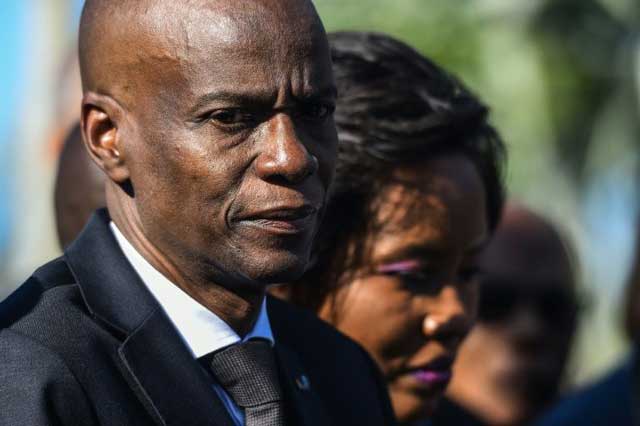
Port-au-Prince, Haiti | AFP | Haiti finally has a new government, but without a parliament capable of giving it legitimacy and without electoral prospects, the country remains paralyzed by a political crisis with potentially devastating social, economic and security consequences.
It’s been more than a year since the Caribbean nation has been led by an interim government. Joseph Jouthe, nominated Monday, is the fifth prime minister chosen by embattled President Jovenel Moise since the latter came to power in February 2017.
But neither Jouthe’s general policy nor his cabinet, which was announced Wednesday, can get the approval of deputies and senators: since no legislative elections were held in the fall, Haiti’s parliament has been inoperative since January.
“Haiti has neither an electoral law nor an electoral budget. President Moise could pass an electoral law and budget by decree, but popular protests and dissent make clear this would not be seen as legitimate,” Ellie Happel, a lawyer and the Haiti program director for Global Justice Clinic, testified Wednesday to the US Congress’s Commission on Human Rights.
Moise — who took office after an election process that lasted nearly two years and in which barely 20 percent of the electorate participated — was relatively unknown to the public until he announced his presidential bid.
Criticized from the get-go by his main opponents, the Haitian leader has quickly attracted public anger, as demonstrations demanding his resignation have proliferated across the island.
– Corruption and poverty –
In a nation where more than 60 percent of the population lives under the poverty line (less than $2.41 per day, according to the World Bank), protests against Moise increased in May 2019 when the High Court of Accounts announced he was suspected of involvement in a huge corruption scandal that stretches back a decade.
This came amid security troubles in the country, with violence and unrest spreading beyond the shantytowns of the capital, which have been controlled by armed gangs for years.
In the fall of 2019, repeated protests and barricades erected on the country’s main roads blocked almost all activities, prompting a majority of schools to shut down for more than two months.
Moise told his cabinet that restoring security, by guaranteeing free movement for people and goods throughout the country, was a priority. But the government’s ability to intervene appears slim.
“A new government in such a complex context, without adequate budgetary resources, without a peaceful climate, without a real national dialogue, without a real desire to separate from corrupt practices will not work miracles,” said Haitian economist Etzer Emile.
– Low investment –
In addition to the political impasse, Haiti has seen a surge in kidnappings for ransom in recent weeks that is a major blow to hopes for economic recovery.
“Misery is increasing. Investments, domestic and foreign, have never been as weak as they have in the past few years,” said Emile.
A third of Haitians currently need emergency humanitarian aid, among them one million with severe food insecurity, a level that precedes total famine according to the classification system used by the World Food Programme.
The collapse of the nation’s fragile economy has, for the time being, been avoided thanks only to the broad financial support of the global Haitian diaspora.
In 2019, $3.3 billion was sent to Haiti through private remittances, mainly from the US, Chile and Canada, making up more than a third of Haiti’s gross domestic product.
 The Independent Uganda: You get the Truth we Pay the Price
The Independent Uganda: You get the Truth we Pay the Price


